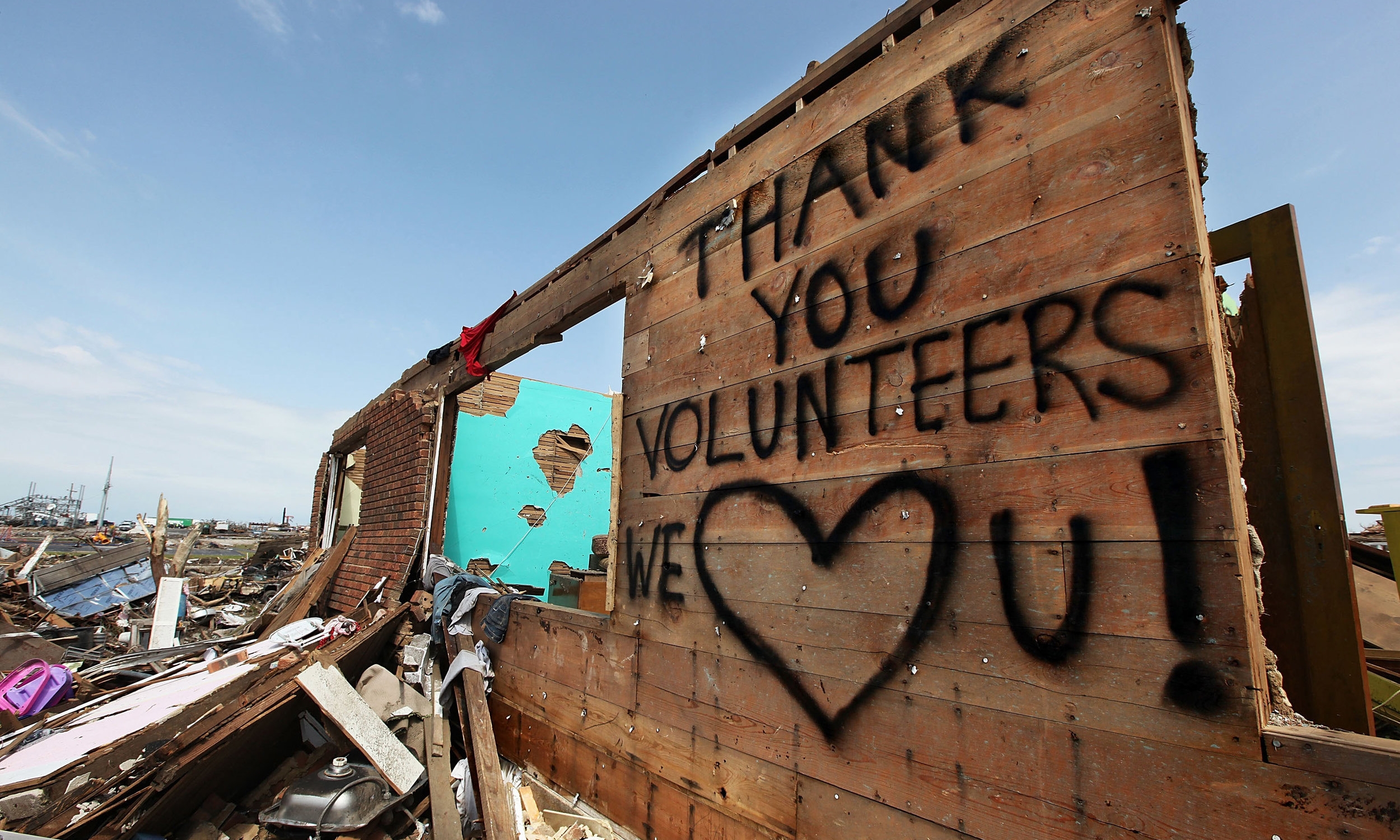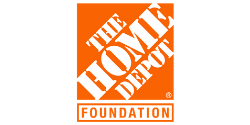Hurricane season has become the “new in-laws” here in the south east. You know they’re coming, but you could really do without them. To help prepare for the inevitable, we caught up with with our Family Literacy Programs Manager, Amanda Bisgaard, for an interesting convo about how volunteers can best help during a disaster.
Amanda is a former Volunteer Coordinator at the Red Cross and an AmeriCorps Alum, who’s forgotten more about disaster preparedness and relief efforts than most of us will ever know. Check out our Q&A to ensure you’re ready to help if and when duty calls. Hopefully, Florence turns around and goes home, but just in case, get prepared.
TIM: What is the most important thing volunteers need to know when it comes to hurricane or disaster relief?
AMANDA: First and foremost, if you’re interested in volunteering, go through a trusted organization (Red Cross, Habitat for Humanity, Team Rubicon, Salvation Army, United Way, All Hands, etc.) aligning your specific skills to which organization can leverage most - working with people, admin tasks, long term in the field, moving and cleaning, etc. Try to avoid what disaster relief organizations call “self-deploying”. A lot of times you will put yourself in danger and add to some of the main issues (traffic, booked up hotel rooms, and evacuating people from an area) local communities face during critical times of a disaster. In addition, everything will most likely be blocked off to people who are not authorized personnel, so this isn’t the smartest way to help, especially in the first few days.
During a hurricane, the first few days are kind of a waiting game. Waiting for the water to go down, waiting for trained emergency responders to evacuate people from houses, waiting to see what the damage is, etc. There isn’t much you can do during the storm and immediately after.
TIM: What about donations? I often feel compelled to things people need.
AMANDA: If you are interested in donating, do not donate supplies! Everyone has the best intentions by collecting clothes, or food, or items to donate to people who were impacted, however this is not an effective way to help victims.
A quick story about that, after the Sandy Hook shooting, thousands of people had the idea to send teddy bears to the town of Newton, the donations filled an entire warehouse where there were over 65,000 teddy bears collected - which is amazing! But in reality, this was not at all helpful. It took thousands of hours to sort and ultimately donate to someone other than the families impacted. The same thing happens in a disaster. It takes many hours and many hands to sort items and a lot of organizations have requirements of what can be donated. (must be new, must be unopened, etc.)
Donate money that can be given to families who have lost everything, so they can choose what they need.
TIM: Got it, donate money. It’s the most helpful. What’s up with the acronym VOAD? I’ve seen this more and more with our efforts to support disaster. Should volunteers know what it is?
AMANDA: VOAD stands for Volunteer Organizations Active in Disasters. Most cities have a VOAD that meets regularly so that they can be prepared when disaster strikes and knows what each organization’s part in the relief is. For example, they’ll determine who will shelter and where, who will do casework, who will help muck and gut houses, etc. When a disaster does strike there is always a disaster operation center set up where there is a representative from every organization to give updates on what everyone is doing. So VOAD is a great resource for nonprofits to help, but also for volunteers to know where they support.
TIM: VOAD is a good resource then. I’ll check that box. Any other resources or suggestions to those thinking about volunteering during a disaster?
AMANDA: I think most importantly, you need to be prepared yourself. After working in the disaster relief field, I have realized how apathetic so many people are, including myself. It is so easy to say “oh I will change that smoke alarm next week” or “that will never happen to me.” Don’t be that person. Look into what you can do to be prepared for a disaster (like reading and sharing this blog).
For hurricane specific preparedness, don’t drive through standing water! Every year people die from doing this. Just 2 feet of water can sweep your car away. You can also make a preparedness kit. You don’t need to be an all-out “prepper” with a basement full of supplies, but a backpack with water, a flashlight, nonperishable food, etc. is a great idea.
Download the American Red Cross Emergency app. I love this app! It tracks hurricane progress, wind speed, and where all American Red Cross shelters are. It also includes what to do before, during, and after a disaster, and a first aid kit if you encounter an emergency and don’t know what to do.
Here’s a quick recap of how you can get involved and help when disaster strikes:
Be prepared yourself.
Figure out what type of volunteer work you’re able to do/help with.
Find the organization that best fits your skills. Do NOT self-deploy.
Donate money, not supplies.
Points of Light put together this fantastic list on Twitter that showcases real time updates from all the major and local parties involved in the Florence preparedness efforts. How are you preparing? Let us know on Twitter and we’ll share with our network.





![COX_jpg_color[1].jpg](https://images.squarespace-cdn.com/content/v1/5939441b1e5b6c8ab18e524f/1585575053403-97BXOUA7L0450WDM09Y5/COX_jpg_color%5B1%5D.jpg)
